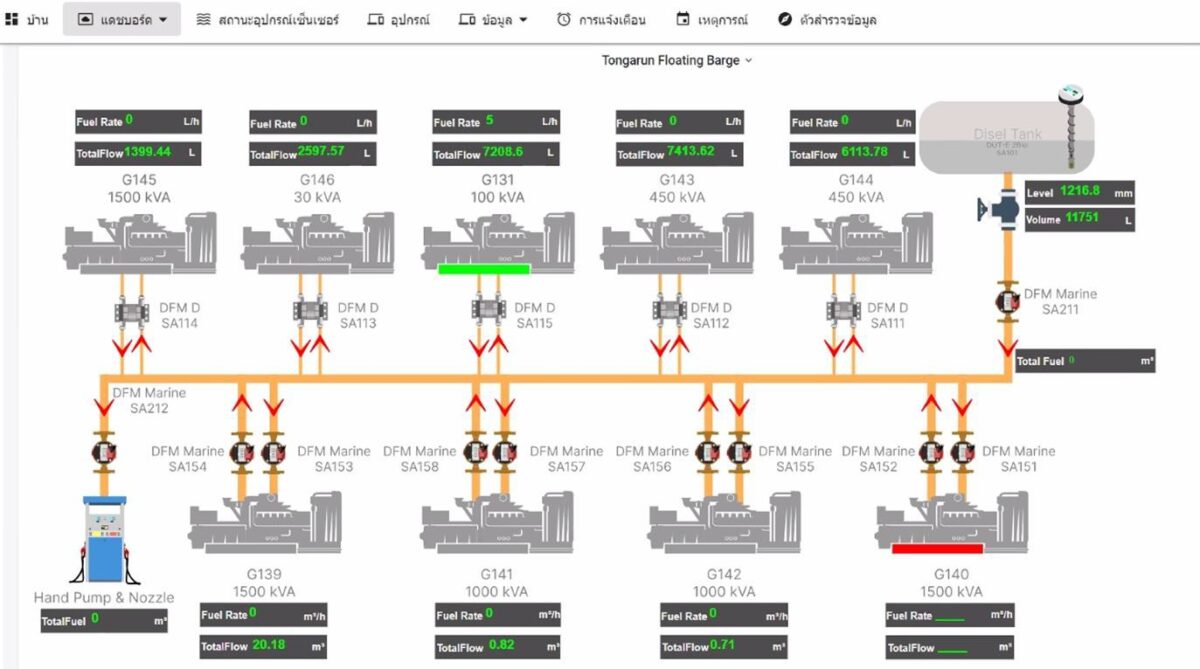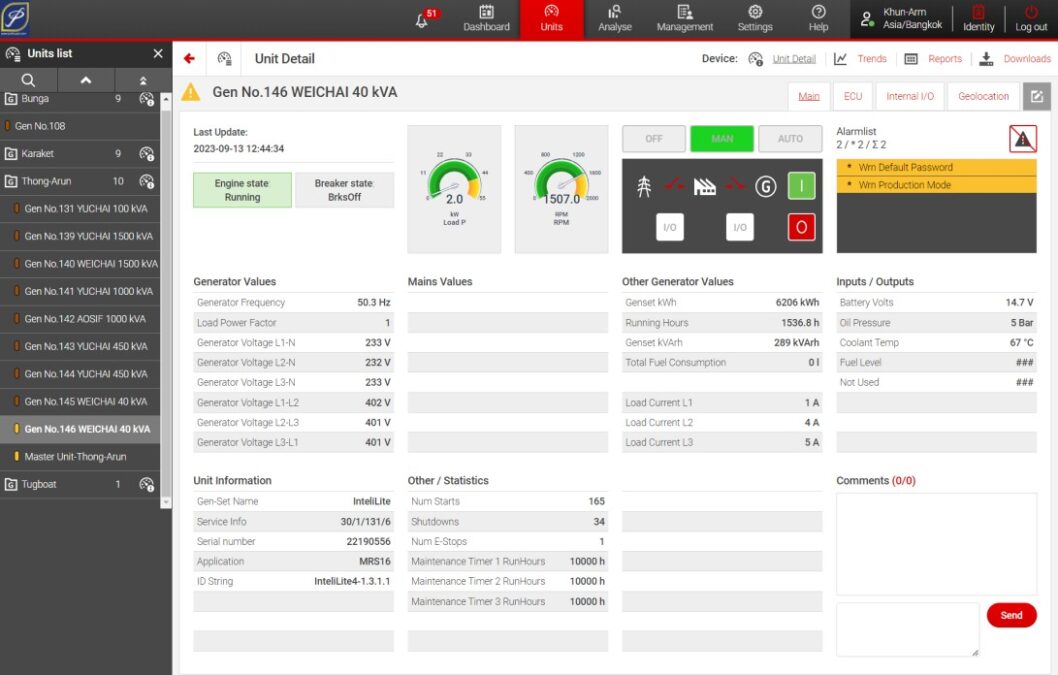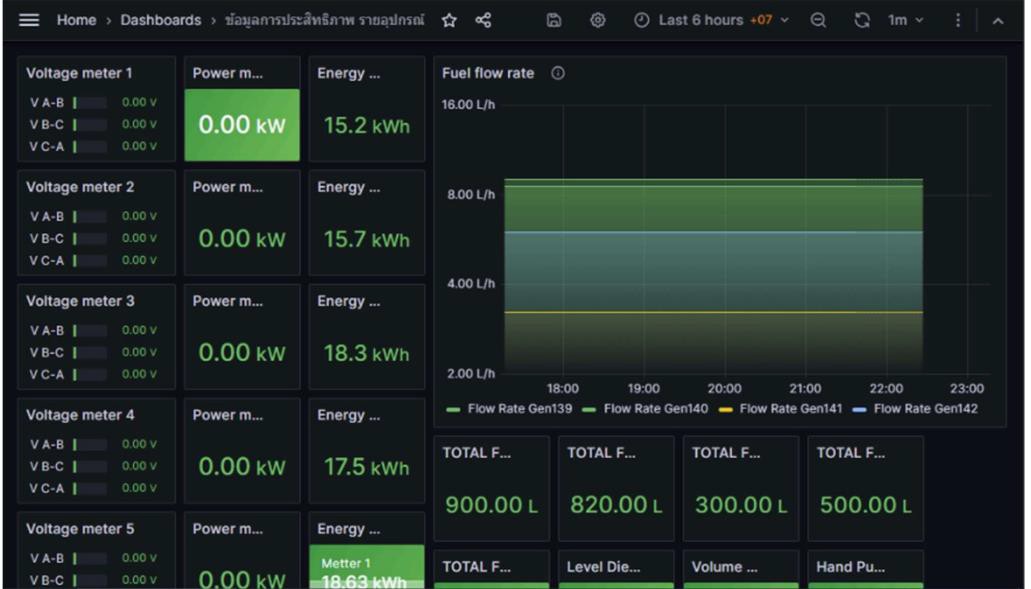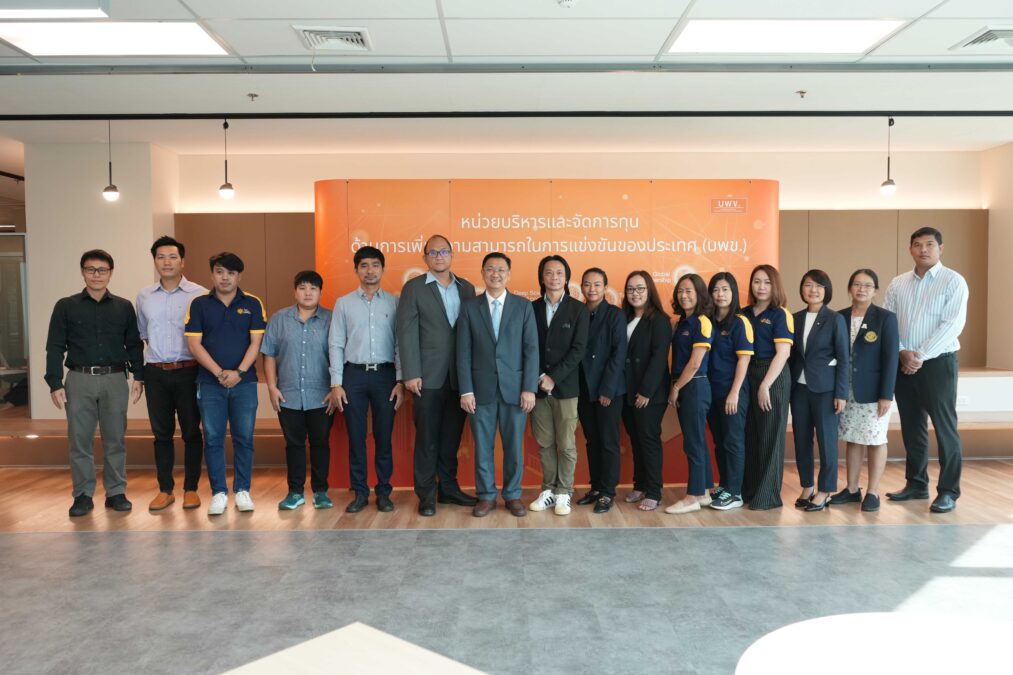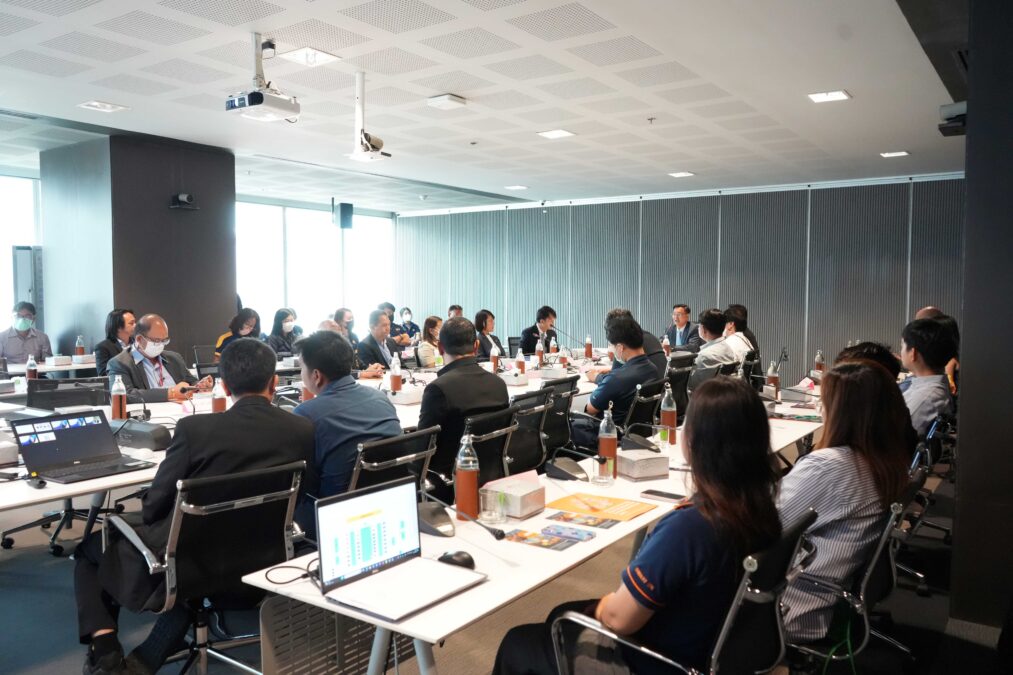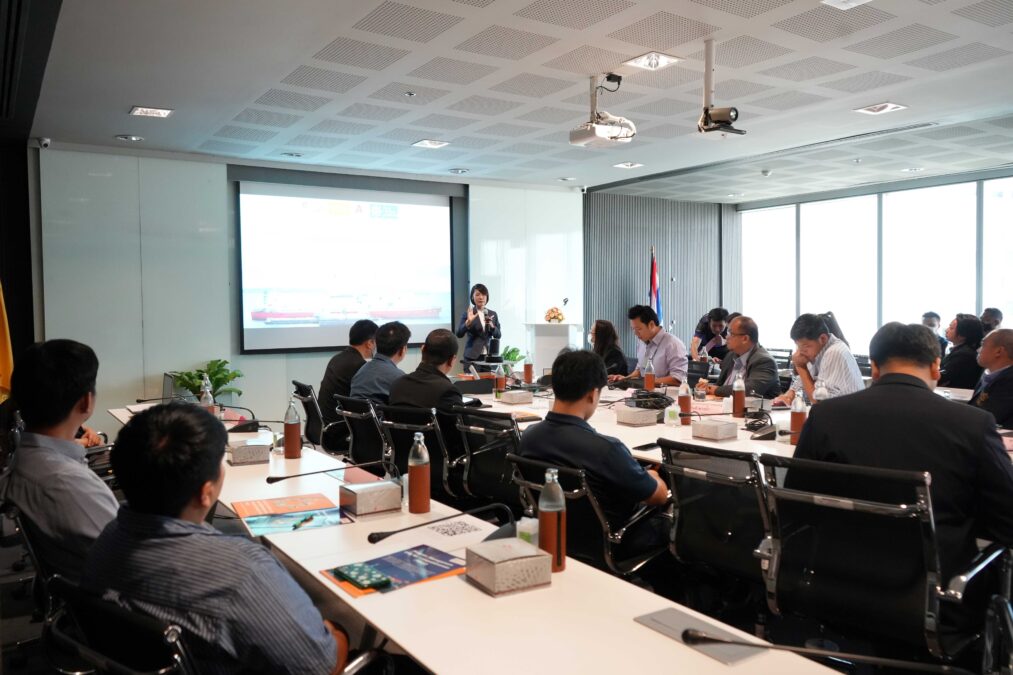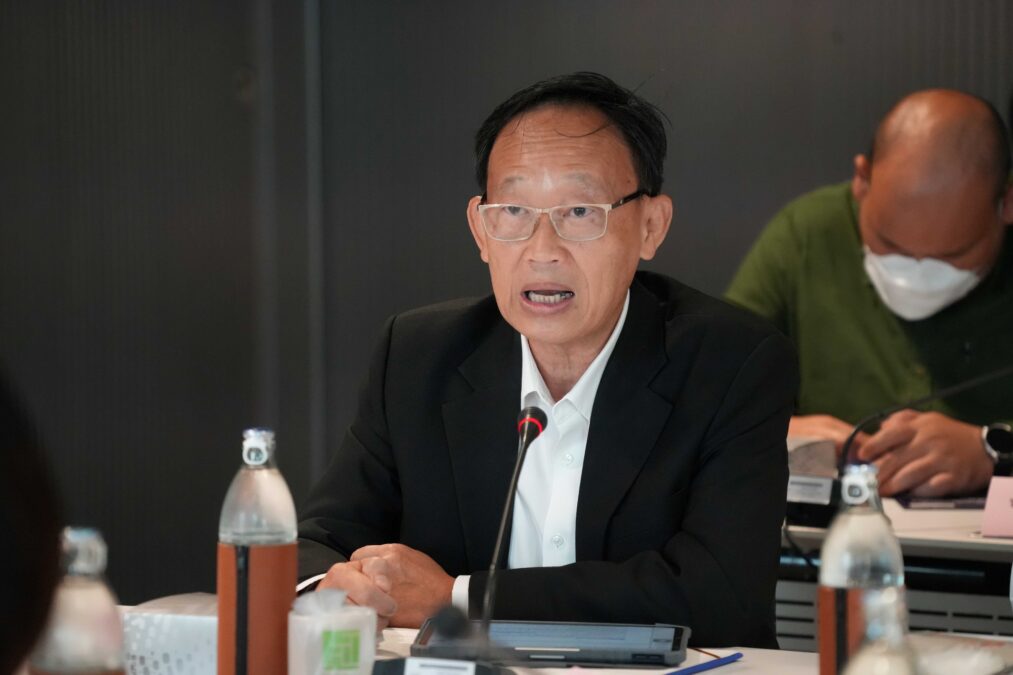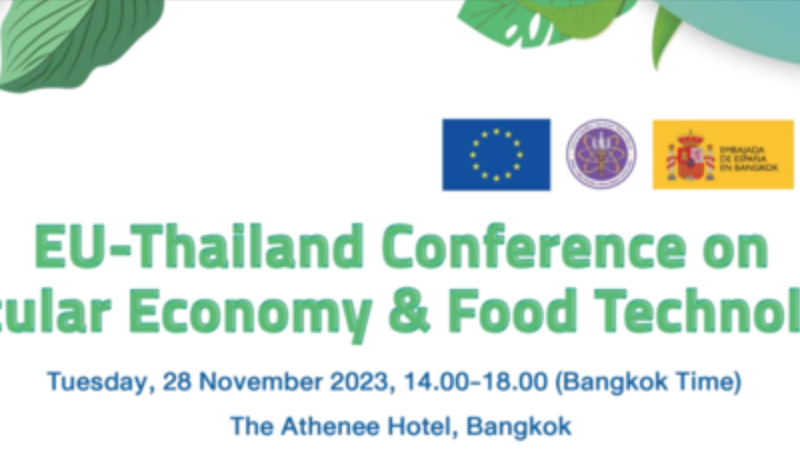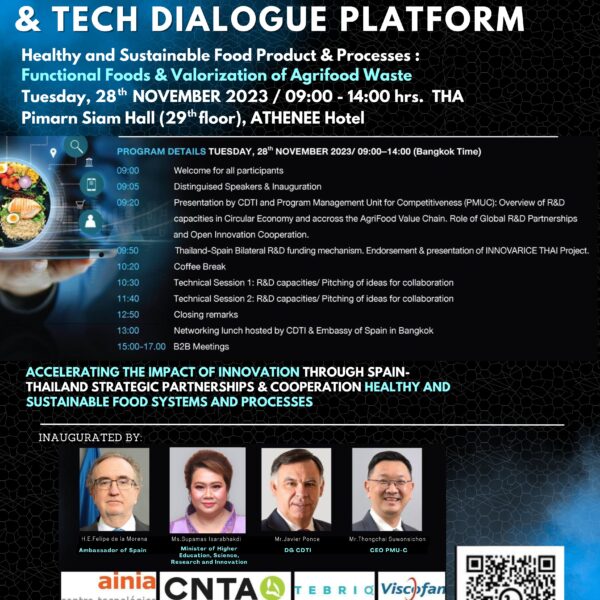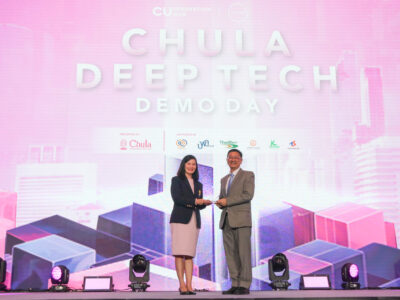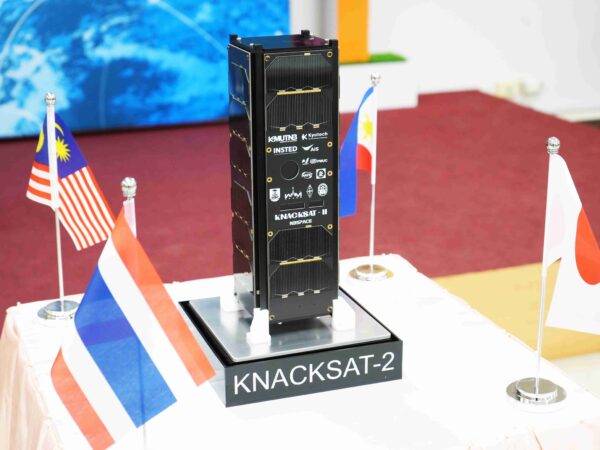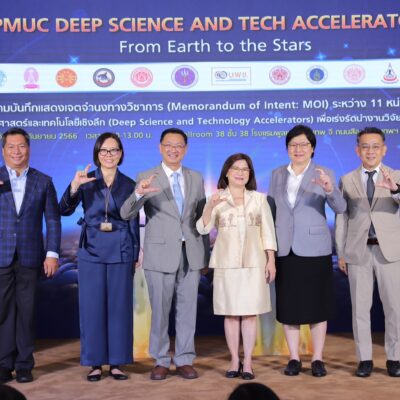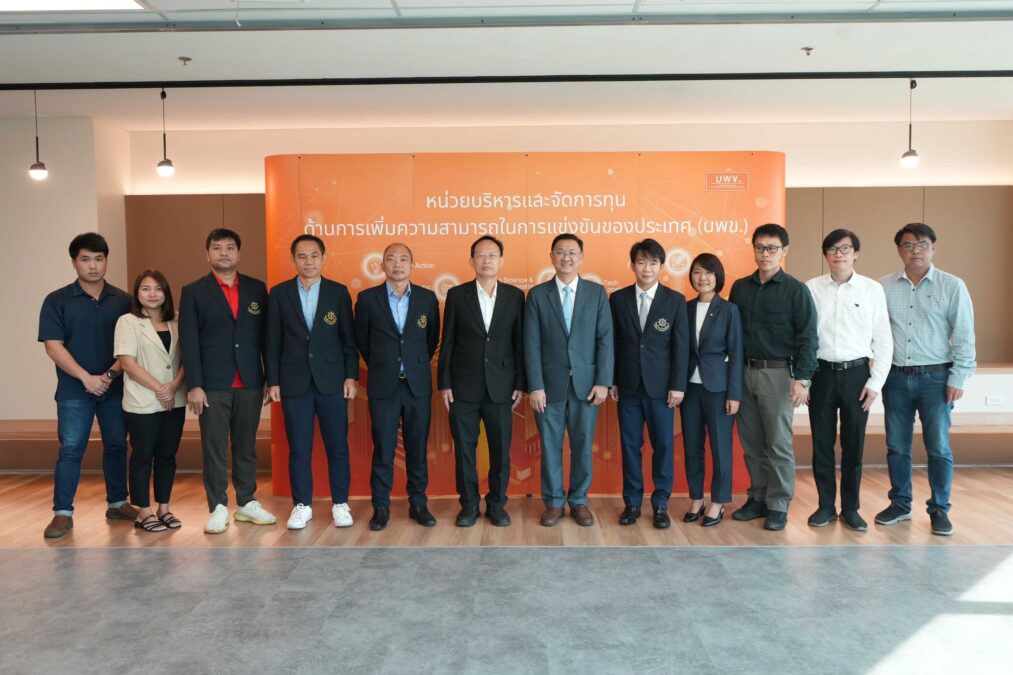
Program Management Unit for Competitiveness (PMUC) in collaboration with the research team from Khon Kaen University, the Maritime and Business Association, and the Department of Alternative Energy Development and Efficiency (DEDE), has introduced a project for logistics system management in the transport of bulk cargo by sea, utilizing information technology and a digital platform. The primary goal is to address pain points and reduce fuel costs for freight transport entrepreneurs by at least 10% annually.
It is undeniable that waterborne cargo transport plays a vital role in Thailand’s economy and trade system. In 2021, according to data from the Port Authority of Thailand, the total cargo volume transported by sea in the vicinity of Thai seaports amounted to 362.009 million tons. This underscores the significance of maritime cargo transportation for the development of logistics and competitiveness in the domestic maritime cargo industry. However, the current maritime transport, especially bulk cargo transport, incurs high logistics costs, particularly in the transportation and handling of cargo at the Seachung region, a crucial point for importing and exporting bulk cargo.
In 2021, Thailand transported more than 48.96 million tons of bulk cargo, such as rice, agricultural products, animal feed, sugar, minerals, energy resources, petroleum products, soil, stones, sand, and fertilizers, as per data from the Office of National Economic and Social Development Council (NESDC). The cost of waterborne cargo transport in Thailand exceeded 234.4 billion Thai Baht in 2021. Furthermore, logistics cost statistics have shown an increasing trend over the years (data from 2012 to 2021). Due to high fuel prices in the transportation of bulk cargo, the excessive use of equipment and machinery results in high energy consumption. The lack of data on energy management and machinery used in cargo transport contributes to delays in recording the electricity production of power-generating equipment and electricity usage rates in various types of cargo transportation, making it challenging for entrepreneurs to plan efficient cargo transportation. This results in energy wastage and increased unnecessary costs.
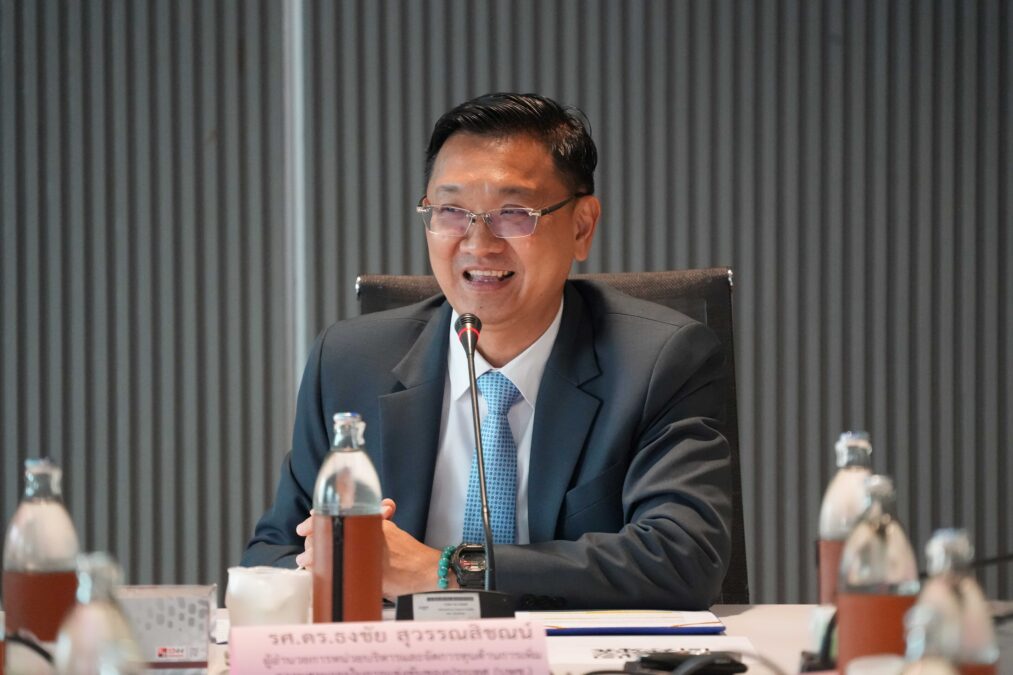
Assoc. Prof. Dr. Thongchai Suwansichon, Director of PMUC, stated that “Enhancing competitiveness in the logistics industry is a crucial mission for PMUC. One of the key tasks we must accomplish is to empower entrepreneurs to increase their competitiveness. Hence, launching this project is essential for PMUC to connect all stakeholders, fostering collaboration. PMUC has provided research and development funding to enable private sector entities to apply research in the commercial sector. In this research endeavor, it is crucial to create projects that can address pain points and cater to the demand-driven needs of the industry while bringing about sustainable change. Our current focus is on cost-effective and energy-efficient transportation, which we anticipate will lead to a well-managed logistics platform. This, in turn, will reduce production costs and enhance Thailand’s competitiveness while promoting environmental sustainability.”
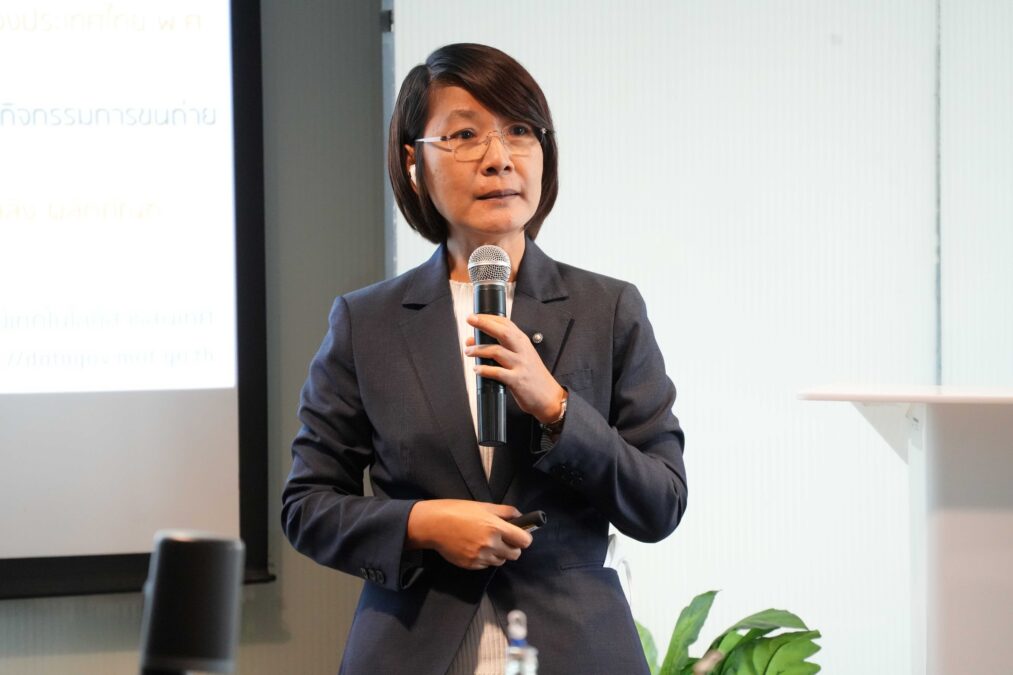
Assoc. Prof. Dr. Kanjana Setanan, who leads the project at Khon Kaen University, emphasized, “We received a problem statement from S.P. Inter Marine Co., Ltd., which faced issues related to energy consumption control in the transport of bulk cargo by sea, where there is no system for measuring and evaluating the diesel consumption rate of cranes used for different types of cargo transportation. As a result, transportation costs for bulk cargo by sea are high, which is a significant concern for maritime freight transport entrepreneurs. We are working on the development of software for allocating ships to transport cargo to different locations and a system for measuring energy consumption rates during bulk cargo transportation. We are also managing real-time big data using digital technologies and developing a database for analyzing energy consumption data. This includes a monitoring and tracking system that can display results through mobile phones. By effectively managing energy consumption for bulk cargo transportation by sea, we aim to reduce costs for entrepreneurs by at least 5-10%. The results from this research will be extended to member companies of the Maritime and Business Association in the Laem Chabang Industrial Estate in the future.” The people participating in this project included those from both the water transportation sector and those within the value chain of water transportation, such as warehouse operators. Therefore, the results of this project can be directly applied to those in the water transportation business and expanded to the community with over 60 companies. For the target group not directly involved in this business, such as various warehouses, they are interested in big data systems and service management software. The research team has developed modules that can be used as stand-alone systems for entrepreneurs.
Regarding reduction of energy consumption, Dr. Kanchana mentioned that there is a high demand for this aspect from customers. Therefore, the research team plans to install solar cells on the cargo carriers in the next phase of the project. Since cargo carriers use energy around the clock and energy is a major expense, reducing the use of diesel fuel can help cut costs. The team believes that implementing solar cells will reduce costs because they can provide direct electrical power to the equipment on board the carriers. Additionally, the research team is also considering expanding this to tugboats that transport and deliver cargo.
“We are trying to consider both economic aspects in terms of industry investments and environmental aspects in terms of carbon neutrality. We have calculated the amount of carbon dioxide emissions, in sq.m., that can be reduced by forgoing the use of 1 liter of diesel fuel. We will try to use the least amount of carbon-emitting fuel and switch to clean energy. Apart from helping the industry save energy, it can also reduce the impact on society and the environment in terms of air pollution and noise pollution,” Dr. Kanchana added.
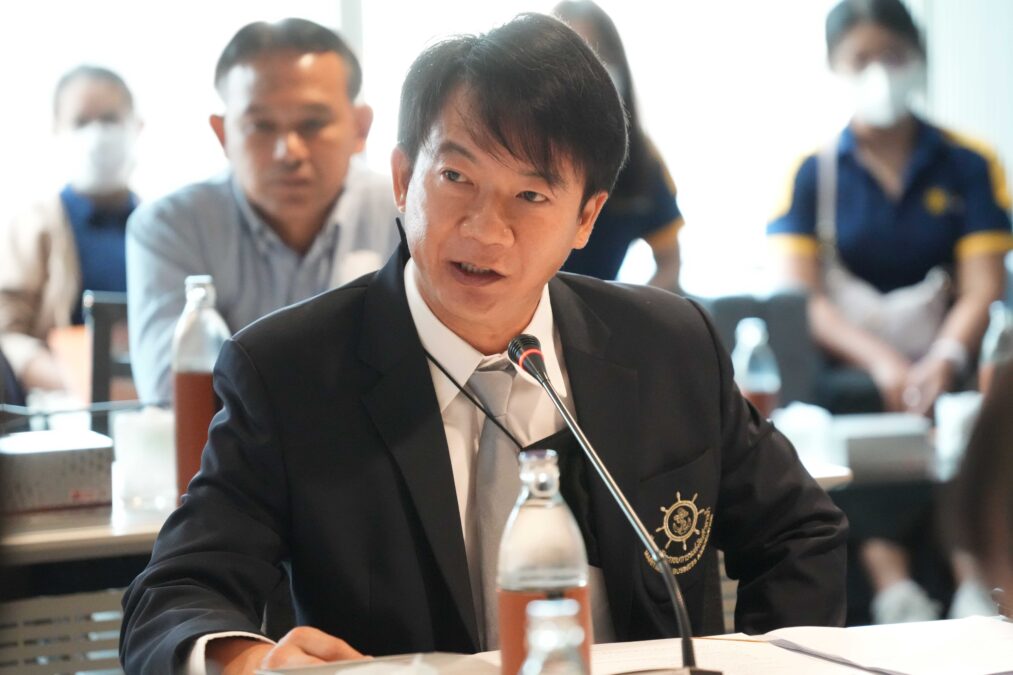
Mr. Worrathep Suwajanakorn, the Secretary-General of the Water Transport Business Association and Vice Chairman of S.P. Inter Marine Co., Ltd., talked about the reasons for investing in this project: “Currently, the company cannot find a way to manage the costs incurred from using oil to produce electricity for cranes in cargo handling across the sea. Therefore, we consulted with Dr. Kanchana and this led to our collaboration in this project under the support of the PMUC. We hope that if this project is successful, it will help reduce energy costs in cargo transportation by no less than 5% per year, which is estimated to be worth over 100 million baht.”
Khon Kaen University has received funding for research and development of technology and management for modern and international logistics systems, with international standards, from the PMUC. S.P. Inter Marine Co., Ltd. is one of the co-sponsors of this project. The aforementioned project has been developed further to expand its scope to “Promote the Establishment of an Energy Conservation Network in the Transportation Sector” at Khon Kaen University. It provides consulting services to the Department of Alternative Energy Development and Efficiency (DEDE) in the 2021 fiscal year to develop an energy conservation plan in the transportation sector for participating organizations. S.P. Inter Marine Co., Ltd. is one of the organizations participating in this project.
The support for research and development of information and digital platforms to modernize the land transportation system in cargo transportation using a digital and information system in this project is the starting point for the development of technology and management for modern and international logistics systems in the country. It will also help create a network of cooperation between the PMUC and various participating agencies in the future. The PMUC expects to be able to develop capabilities and enhance knowledge in logistics system management and cargo transportation for effective use in the future.
